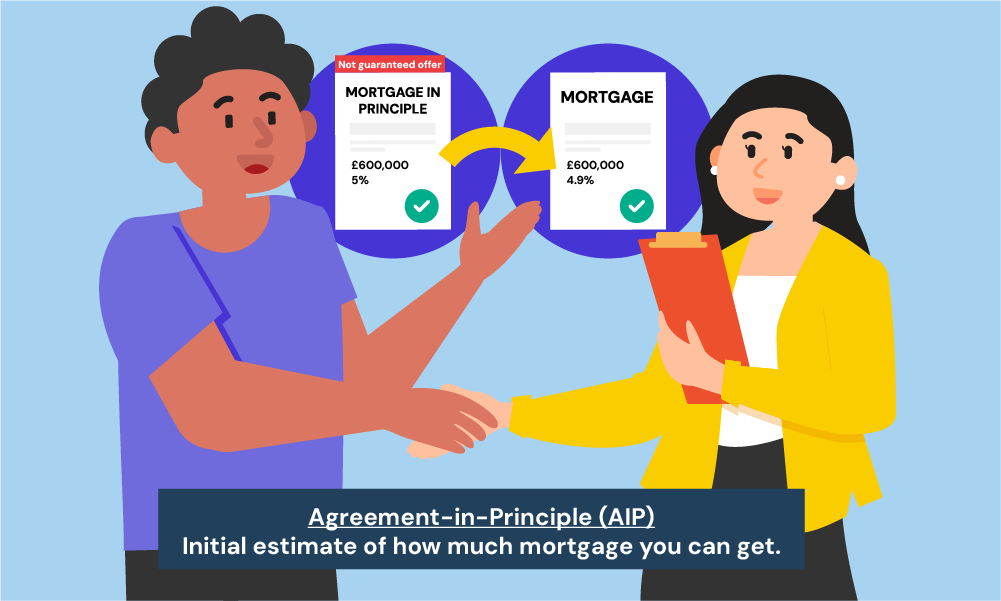- What is a Concessionary Purchase?
- How Do Concessionary Purchase Mortgages Work?
- Types Of Concessionary Mortgage
- How Can You Qualify for a Concessionary Mortgage?
- What Should I Know About the Legal Aspects?
- Who Offers Concessionary Purchase Mortgages?
- The Pros And Cons Of Concessionary Mortgage
- Alternatives To Concessionary Mortgages
- Key Takeaways
- The Bottom Line
How Concessionary Mortgages Can Save You Money: A Guide

What if you could buy your dream home without needing a huge deposit?
Concessionary mortgages let you cover 100% of your home’s purchase price, so you can own a home without a big upfront cost.
They’re ideal if you can buy a house below market value, often from family or your employer.
This guide explains everything about concessionary mortgages, how they work, and their benefits. We’ll help you decide if this option can unlock the door to your new home easier
What is a Concessionary Purchase?
In a concessionary purchase, you buy a property below market value because someone ‘gifts’ you the difference.
This gift, unlike a loan or shared ownership, reduces the purchase price for you. Here’s when concessionary purchases often happen:
- A parent sells their house to their child for less than its worth as a way to help them out.
- A landlord offers to sell the apartment to a long-time tenant at a lower price to avoid the hassle of listing it.
- An employer sells a property to an employee at a discounted rate as a benefit of working for the company.
- A developer offers new homes at reduced prices to specific buyers to quickly sell more properties.
How Do Concessionary Purchase Mortgages Work?
Let’s say your parents want to help you buy a house. They might sell their house to you for less than it’s worth. This generous act gives you a head start in getting a mortgage.
Here’s how it happens.
First, they agree to give you this gift of equity. This is the difference between the home’s market value and your purchase price.
For example, if the house is valued at £300,000 and your buying price is £200,000, your £100,000 gift can serve as your deposit.
This makes it more likely for lenders to approve your mortgage because you already have a big part of the deposit.
This type of mortgage isn’t just for family deals. It could also work if you’re buying from your landlord or even from your employer.
Each situation might need a slightly different approach with the lender but follows the same basic idea.
Types Of Concessionary Mortgage
Here are some of the most common types:
Family Concessionary Mortgages
This is when a family member, like your mum or dad, sells you their house for less than it’s worth. The price difference helps you with your deposit.
Sometimes, the person selling the house might need to move out, but some lenders let them stay if you tell them.
Landlord Concessionary Mortgages
If you’re renting and your landlord wants to sell the house, they might sell it to you for less than its full price. This avoids the hassle of selling it on the open market.
You might need to have been renting there for at least a year to get this deal. It makes things simpler and helps both you and your landlord.
Employer-Assisted Mortgages
Some jobs offer the perk of buying a home at a discount. Your employer might sell you a property they own at a lower price or help you with the deposit.
Make sure everything is written down, stating that the help is a gift, not a loan, to avoid any problems later.
Developer Concessionary Mortgages
Sometimes, property developers sell homes at a discount, maybe to their workers or as part of a special deal.
This can be tricky because the bank might wonder why the house is cheaper.
If the house has problems like dampness or something else wrong with it, it could be why it’s cheaper. Be careful, as this can make getting a mortgage harder.
Open Market Concessionary Mortgages
You might also find homes on the open market being sold for less than usual. This might be because there’s something wrong with the house, like damage or other issues.
Banks often worry about these deals because they’re risky. Make sure you check the house well before deciding to buy it.
How Can You Qualify for a Concessionary Mortgage?
If you’re thinking about getting a concessionary purchase mortgage, there are a few things you need to know. It’s not too complicated, but you need to meet certain criteria.
Here’s what you need to know to qualify:
Check Your Deposit Size
The amount you can put down as a deposit really matters.
If you’re getting help with the deposit through a gift of equity – that’s the part of the property’s value that’s gifted to you – make sure it’s enough to meet the lender’s requirements.
Some lenders might need it to cover a certain percentage of the purchase price.
Look at Your Credit History
Your credit history is key when applying for any mortgage. Lenders want to see that you’ve been responsible with your money.
To get your credit reports, check with credit agencies like Experian, Equifax, and TransUnion.
If you have a poor credit history, it might be harder to get approved, but it’s not always impossible.
Some lenders are more flexible, especially if the reason for any past issues is clear and understandable. Please note though that different credit issues weigh differently. A late payment might be acceptable for lenders, but bankruptcy is usually
Gather Your Documents
You’ll need to have all your paperwork in order. This includes proof of your income, outgoings, and the gift of equity.
You’ll also need an Agreement in Principle. This is something lenders give that says they might lend to you based on what they know so far.
It’s not a guarantee, but it’s a good first step in the mortgage process.

Take Preliminary Steps
Before you apply, it’s smart to talk to a mortgage advisor and make sure you understand all the requirements.
Getting everything ready before you apply can make the whole process smoother and increase your chances of securing the mortgage you want.
What Should I Know About the Legal Aspects?
When you’re thinking about getting a concessionary purchase mortgage, there are some legal bits you really need to know about.
These will help make sure everything goes smoothly and you don’t run into problems later.
Firstly, any gift of equity – that’s the part of the property’s value that’s given to you as a gift – needs to be properly declared.
This is important because it shows the mortgage lender that the money isn’t a loan that you need to pay back. A formal declaration helps clear any confusion about where your deposit came from.
You also need to think about the tax implications. Buying a property like this could affect how much stamp duty you pay.
Stamp Duty Land Tax (SDLT) is usually based on the transaction value of the property, not its full market value.
So, in a concessionary purchase, the SDLT will be calculated on the lower purchase price you pay. In rare cases where property was transferred as a ‘gift’ with no consideration (money) exchanged, you might not have to pay any SDLT at all.
Capital gains tax (CGT) could also be a factor, especially for the seller. If they sell it to you for less than its market value, they might need to pay CGT on the difference.
This doesn’t affect you directly when buying, but it’s something the seller should consider.
Inheritance tax rules are another crucial aspect. If the seller ‘gifts’ part of the property’s value, this could be counted as part of their estate for inheritance tax if they pass away within seven years of the gift.
This affects how much tax might be due on their estate if it’s above the tax-free allowance.
Having clear legal agreements is crucial. They help prevent any disputes in the future about the property sale.
Make sure everything is written down and agreed upon by all parties involved. This includes the terms of the sale, the property price, and any conditions of the sale.
Who Offers Concessionary Purchase Mortgages?
Finding the right lender for a concessionary purchase mortgage can feel like a big task, but there are plenty out there.
Many banks and building societies in the UK offer these mortgages, especially for buyers getting help from family members.
To find the best lender for you, start by comparing their mortgage rates and terms online.
Talking to a mortgage broker can also be a huge help. They know the market well and can guide you to lenders who offer the best deals for your situation.
Brokers often have access to exclusive deals not available directly from lenders, making their role crucial in finding the most affordable and flexible options.
The Pros And Cons Of Concessionary Mortgage
Concessionary mortgages can be a great way to get on the property ladder, especially for first-time buyers. But, like any financial decision, there are both benefits and drawbacks to consider before taking this route.
Let’s explore both to help you decide if it’s the right option for you.
Pros
- You can buy a home faster because the discount helps cover your deposit.
- The house costs less, making it more affordable.
- You might save money on stamp duty taxes.
- It’s a great way for families to help each other or pass down a home.
Cons
- The seller might not be able to stay in the home after selling it cheaply.
- Selling for less could affect the seller’s benefits, like financial support from the government.
- If the seller dies within seven years, there could be inheritance tax issues.
- Banks will look closely at the deal to make sure it’s legit, which can slow things down.
- If the discount isn’t properly documented, it could cause legal problems.
Alternatives To Concessionary Mortgages
If concessionary mortgages don’t quite meet your needs, or if you’re looking for different financing options, here are some alternatives to explore:
- Guarantor Mortgages. In this arrangement, a family member or friend guarantees your mortgage by agreeing to cover the payments if you can’t. This assures lenders and can help you qualify even with a poor credit history or income.
- Family Springboard Mortgages. Some banks let a family member put savings towards your mortgage as security. After on-time payments for a set period, your family member gets their money back with interest.
- Shared Ownership Schemes. This lets you buy a share of a property (25%-75%) and pay rent on the rest. As you save, you can buy bigger shares to eventually own the whole thing.
- Mortgage Guarantee Scheme (until June 2025). This government program helps lenders offer mortgages with just a 5%-9% deposit. It aims to make getting on the property ladder easier for more people.
Key Takeaways
- A concessionary purchase lets you buy a home for less than it’s worth, usually as a gift from family, your landlord, or your boss, and the discount can count as your deposit.
- To qualify, you need good credit, enough deposit from the discount, and proof that the discount is a gift, not a loan.
- Sorting out legal details, like taxes and inheritance rules, is important to avoid any trouble later.
- These deals are most common with family, but landlords, employers, or property developers might offer them too.
- If this option doesn’t work for you, other ways to buy a home include shared ownership or getting help from family savings.
The Bottom Line
Concessionary purchase mortgages can help you buy sooner and save money, but there are catches:
- Not all lenders offer them, and those that do might be picky about who qualifies.
- They might not be suitable for all properties. Extensive repairs or unrelated sellers could make lenders wary. They want to prevent dodgy deals where property just gets passed on quickly.
- Consider future market changes. If prices fall, you could owe more than your home’s worth.
Think carefully about these downsides before going for a concessionary purchase mortgage. Always have a plan to keep up with repayments, no matter what life throws your way.
Want to know if a concessionary mortgage is right for you? Talk to a good mortgage broker. They’ll help you decide if it’s the best path to buying your dream home in the UK.
Contact us today for a free consultation with a qualified mortgage broker experienced in concessionary purchases.
Get Matched With Your Dream Mortgage Advisor...

Frequently asked questions
What’s the difference between a concessionary purchase and a gifted deposit?
In a concessionary purchase, you buy a property for less than its market value, often because a family member sells it to you at a discount.
In a gifted deposit, someone gives you money to help pay for the deposit on a home, but you buy the property at its full market value.
Can I get a concessionary mortgage with a poor credit score?
Yes, you can get a concessionary mortgage with a poor credit score, but it might be harder. Lenders will look at your whole financial situation to decide.
You might need to show you can manage your money well now, even if you had problems in the past.




